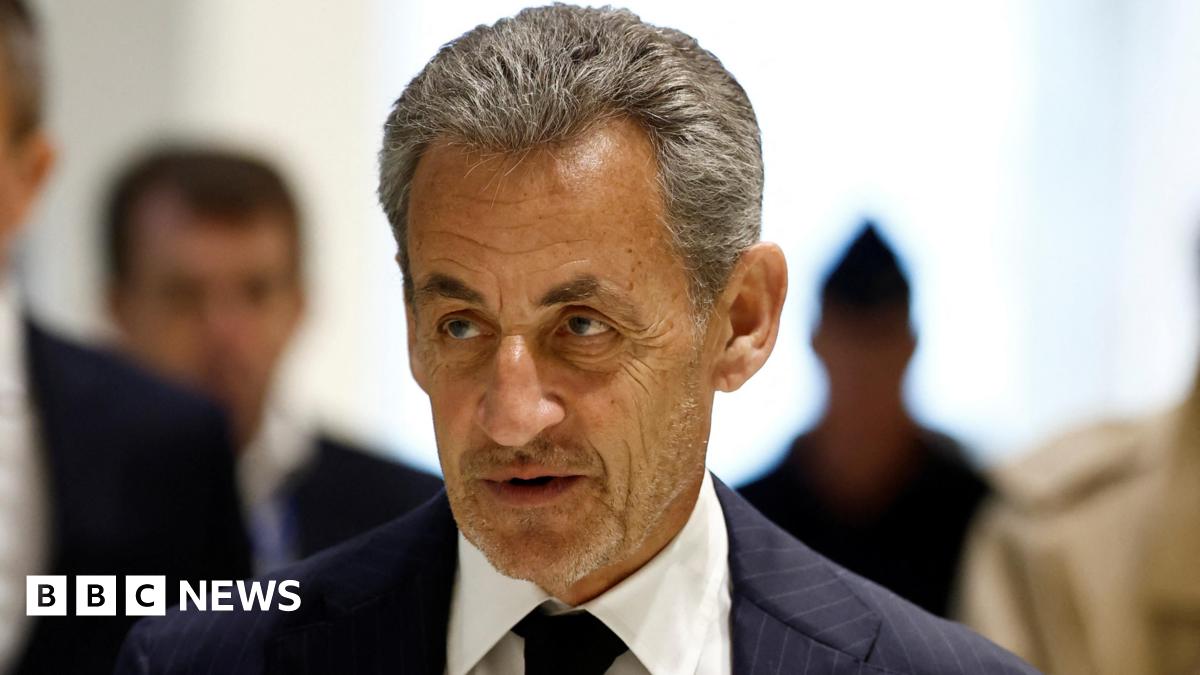Pokrovsk in eastern Ukraine is the birthplace of one of the world's favourite carols.
But there are few signs of Christmas in the city this year. Just a dusting of snow on deserted streets and skeletal buildings - and the constant sound of heavy shelling.
Pokrovsk is Russia's next target. Its troops are now less than two miles (three kilometres) from the city centre.
And it's not just buildings and homes that are being destroyed. Ukraine accuses Russia of trying to erase its cultural identity too – including its associations with that well-known carol.
Most of Pokrovsk's population has already fled. The gas supply's been turned off and many homes are without electricity and water. Those who remain, like 59-year-old Ihor, only break cover to find the bare essentials. He says it's like living on a powder keg – you never know when or where the next shell will land.
Oksana, 43, says she's too frightened to leave her home, but goes out during a lull in the shelling to find wood and coal to keep warm.
She tells me she hopes Ukraine's armed forces can hold on to the city, but she thinks that's unlikely. Pokrovsk, she says, will probably fall.
The city has already prepared for the worst. The statue of its famous composer, Mykola Leontovych, has already been removed. The music school that bore his name now lies boarded up and empty.
Leontovych may not be well known in the West. But the tune he composed is familiar around the world - with its chime-like vocals. It's thought that Leontovych wrote the early scores of the composition, based on a Ukrainian folk chant, while he was living and working in Pokrovsk between 1904 and 1908.
In Ukraine it's known as Shchedryk. To most of the world it became known as the Carol of the Bells, after American composer Peter Wilhousky wrote English lyrics for the song. The tune's use in the Hollywood film Home Alone helped boost its popularity.
Viktoria Ametova calls it "a masterpiece - the signature song of Pokrovsk". She too was until recently teaching music in the city, in the school that bore Leontovych's name.
She's now moved to the relative safety of Dnipro. It's where many of Pokrovsk's former residents are still trying to keep the memories of their former home alive.
Beneath a salvaged portrait of Leontovych, Viktoria watches as 13-year-old Anna Hasych strikes the familiar chords of the carol on a piano.
The Hasych family fled Pokrovsk this summer. But they're determined not to forget the place they still call home. Anna's mother, Yulia, says she's glad to see her daughters practising Shchedryk. "We won't forget the history of our town," she says.
For Anna, the tune brings back memories. "When I played it at home it seemed happy. It reminded me of winter and Christmas," she says. "Now it's more of a sad song to me because it reminds me of home, and I really want to go back."
But for one Ukrainian military band, Shchedryk has become a song to inspire resistance. They're even playing it in the trenches – using weapons as improvised instruments.
They may be musicians, but their commander reminds me that they're soldiers first. All have spent time on the front line. Colonel Bohdan Zadorozhnyy, the head of the band and its conductor, says the song helps lifts soldiers spirits. "Those beats and rhythms cheer up the guys on the front line and inspire them to fight," he says.
22-year-old Roman uses a rocket launcher casing, filled with rice, to shake vigorously in time with the music. Shchedryk, he says, is the "pride of our country, it's freedom, it's in our souls, I get goosebumps from this song".
Colonel Zadorozhnyy says Shchedryk shows that Ukraine is a civilised nation, now at war, fighting for its identity.
Pokrovsk may well fall into Russian hands. But its people are doing all they can to preserve their culture and identity.
The director of Pokrovsk's History Museum, Angelina Rozhkova, has already salvaged and transferred most of its prized possessions to safety – including artefacts from Leontovych's life in Pokrovsk.
Russia, she says, doesn't just want to take Ukraine's territory – "It wants to destroy our culture and everything precious to us".
Angelina says the people of Pokrovsk understand they may never go back, "but our heart and souls do not accept that". Hence they're doing everything they can to preserve the past. The new motto is "keeping and saving, equals winning".
It's hard to say you're winning when your city's being destroyed. But its people, like Leontovych's music, are displaying extraordinary resilience.
Leontovych's life came to an abrupt end in 1921 when he was shot by a Soviet agent. His composition had become a symbol for the fight for Ukraine's independence. It still is.
Additional reporting by Hanna Chornous and Anastasiia Levchenko
.png)
 2 weeks ago
12
2 weeks ago
12



/cdn.vox-cdn.com/uploads/chorus_asset/file/25515570/minesweeper_netflix_screenshot.jpg)




 English (US) ·
English (US) ·